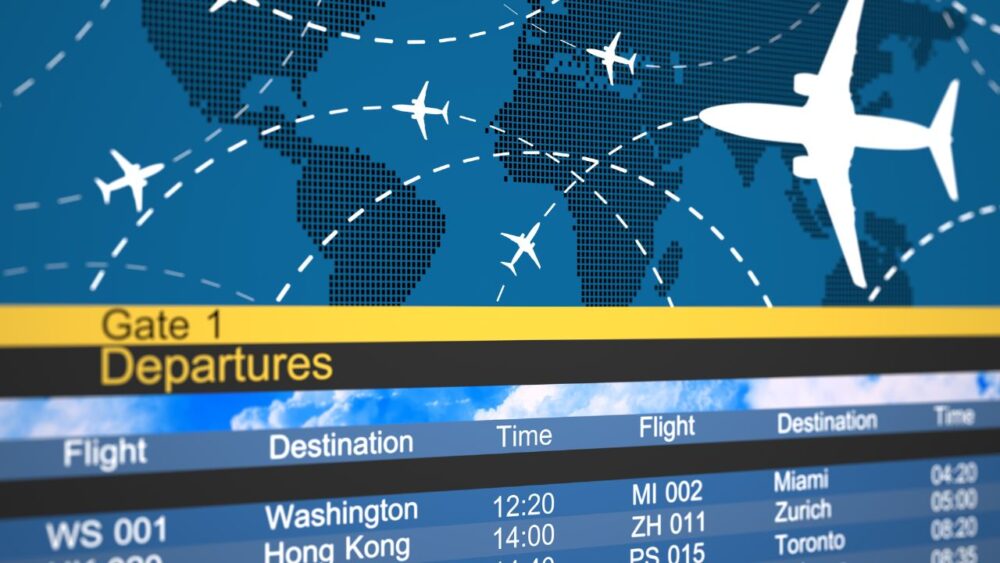Deputy Assistant Attorney General at the Antitrust Division of the U.S. Department of Justice, Dina Kallay, warned that government regulations and antitrust immunities threaten airline competition, citing recent cases involving American carriers and their international partnerships.
Speaking virtually at the 2025 Chatham House Competition Policy Conference, Kallay highlighted how the Justice Department successfully blocked domestic alliances while scrutinizing international joint ventures that harm consumers.
With Thanksgiving travel approaching, airline costs remain a pressing concern for families nationwide.
“Hardworking families today are overwhelmed by the cost of fuel, food, housing, automobiles, medical care, utilities, and insurance,” Kallay said, referencing previous sentiments made by President Trump. “It is critical to restore purchasing power to the American family.”
Kallay pointed to the Northeast Alliance between American Airlines and JetBlue as a cautionary tale. The partnership, which included revenue sharing and capacity coordination, effectively ended competition between the carriers in northeastern markets.
Federal courts agreed with the Justice Department’s assessment and blocked the alliance in 2023. The Supreme Court rejected American Airlines’s appeal this June, preserving competition for 32 million air travelers.
International alliances present different challenges.
The Department of Transportation recently terminated antitrust immunity for Delta Air Lines and Aeromexico’s joint venture, citing Mexico’s discriminatory airport slot allocation practices.
“The Government of Mexico had continued along a path of market intervention and distortion,” according to DOT findings cited in Kallay’s remarks.
Such government interference favors national carriers over American. Mexico City International Airport’s slot system advantages Aeromexico while limiting U.S. carrier access.
Kallay emphasized that antitrust exemptions should remain narrow and temporary. “Exemptions distort competition and strip consumers of the protection of competition laws,” she said.
The airline industry exemplifies broader concerns about regulatory capture. Five major U.S. carriers have absorbed 42 competitors since 1960, with four airlines now controlling 75 percent of domestic markets.
Assistant Attorney General Gail Slater has made clear that “the American free market system does not support centralized market planning or the promotion of national champion monopolists,” Kallay noted.
The Justice Department continues reviewing anticompetitive regulations across industries. President Trump’s executive orders direct agencies to eliminate rules that “predetermine economic winners and losers.”
International cooperation remains crucial as multinational corporations engage in cross-border transactions. Kallay urged fellow competition authorities to join efforts against anticompetitive regulations worldwide.
“Consumers worldwide stand to benefit from this type of work,” she concluded.


